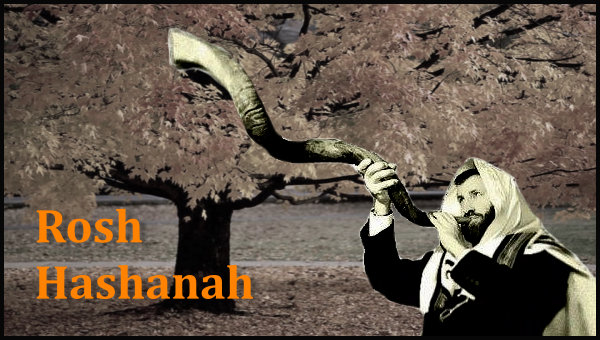By Tyson Thorne

Last year during our study of Acts we summarized the meaning of many of the Feasts of the Lord. To refresh your memory, there are seven feasts God himself implemented in the book of Deuteronomy that the people of Israel were to celebrate every year. There are four feasts in the Spring and three in the Fall. All of the feasts have two distinguishing characteristics, they look back at a time God rescued the people of Israel (even before the nation existed) and look forward toward a prophecy about the Messiah. The prophecies found in the four Spring feasts were all fulfilled during Jesus’ first coming and were accomplished on the actual feast days, the last three will be realized in the same way. The first of the three Fall feasts is Rosh Hashanah, and it starts today (Sunday September 13, 2015) at sunset.
On the Jewish calendar Rosh Hashanah, the Feast of Trumpets in English, falls on the first of Tishri. What does this mean? Glad you asked, because it does have importance. This date is the first day of the civil New Year, is the only feast to fall on the first of a month and is the only one to fall on a new moon. What may be most important of all, however, is that it is believed this day is the first day of creation – the birthday of the world!
The holiday ushers in the High Holy Days of Judaism and extends a little over 48 hours. This year is starts today at sunset and extends to Tuesday at nightfall. Immediately at the close of the Feast of trumpets begins the Ten Days of Awe, a time of self-examination, repentance and forgiveness. At the end of the 10 days is Yom Kippur. The Day of Atonement, which you can read about elsewhere on this site. During Rosh Hashanah several animal sacrifices were made, including morning and evening sacrifices, a new moon sacrifice, and also some associated with the festival and other normal sacrifices. Hatzotzerah trumpets (made of hammered metal) and shofar trumpets (made from a ram’s horn) are blown during the sacrifices, hence the name of the feast.
The prophetic meaning of the Feast of Trumpets is the day of the rapture. It is believed that all of God’s people will be evacuated from the earth before the devil and antichrist begin their time of reigning over the earth. We know from 1 Thessalonians that the Holy Spirit will end his role of holding back evil on earth and return to heaven. Since Jesus promised that the Holy Spirit would indwell believers and never leave them, when the Spirit goes we go too being caught up in the heavenlies with our savior. Again, since the first four Feasts were fulfilled on the actual feast days there is no reason to think the Fall feasts would be any different. So while no man knows the day or the hour of Messiah’s return, it will be sometime during the Feast of Trumpets, and possibly even this year during the feast.
Why this year? If you’ve been reading this site very long you will have come across a couple discussions about the four blood moons that started last year on the Passover, then another on Rosh Hashanah last year, and then during Passover this year and the last one on Rosh Hashanah of this year. While blood moons or a normal phenomenon it is rare that they fall during Jewish Feasts. It has long been recognized that God sometimes uses solar events (like an eclipse) to warn Gentile nations about a coming judgment, but uses lunar events to communicate with Israel. For this reason many have suggested this may be the time of Messiah’s return, and if not then at least something very significant for Israel will likely take place.
|
|
